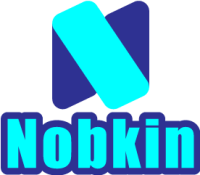The frontend development is the part of your mobile app, website or desktop software that a user interacts with. This includes the visual design, content, interactive elements (buttons, drop-down menus), and navigation.
To achieve this, front-end developers use coding languages like HTML and CSS to create the user interface. They also use JavaScript to add functionality to a web page or app.
Identify Your Requirements
Developing an application for your business or personal use requires a bit of planning. Identifying your requirements is a great starting point and can save you from a hefty bill in the end. Having a good understanding of what you need and how much it will cost will help you find the right frontend apps developers for your needs. In addition, having a clear plan will also keep you from wasting your time on projects that don’t deliver.
The best way to go about identifying your requirements is to ask yourself questions like: “what are my goals for the project, and what are the specific tasks and deadlines that I need to accomplish? What resources will I need to complete the project, and how can I ensure the work is done on schedule?” Lastly, identify the most important stakeholders, i.e. the people who will have a direct impact on your project success. Getting the right people on board with your vision for your app will pay dividends in the long run.
Write a Project Description
Project descriptions provide a clear, structured look at team projects. They include components like company goals, stakeholders, and deadlines.
A project description can help you make a good impression on potential clients and attract top frontend apps developers to your business. It is a brief, informative summary that sets up the major project goals or challenges, describes how your team met those goals, and provides an overview of the final product and client satisfaction.
Developing effective project descriptions requires a balance between descriptive and technical writing. It demonstrates expertise and innovation and helps prospective clients understand your capability to overcome project obstacles.
Post on up work
One of the best places to look for top-tier freelance frontend developers is up work, where you can search for the right candidate by location and project spec. up work also enables you to create a streamlined profile that highlights your strengths and skillset in a way that no self-respecting freelancer would ignore.
If you want to win the contract of the century, be sure to include a slew of well-crafted project descriptions and an impressive portfolio of sample work, especially if you’re a newbie. The most successful freelancers will have a well-oiled machine ensuring they deliver what their clients are looking for, when they need it. It’s a good idea to create a timeline for every project, which helps ensure everyone is on the same page. Having a schedule is an important part of any successful remote team, and the best freelancers will make it a point to stick to it. The most important rule of thumb is to keep your expectations realistic and your budget in mind.
Shortlist and Interview
The frontend apps development interview is one of the most critical rounds in the recruitment process. It helps employer’s shortlist and hire the best candidates.
The interview consists of several rounds, including telephonic and video interviews. Both rounds enable recruiters to evaluate the applicant’s body language, interpersonal skills, and soft skills.
It also gives you the opportunity to determine the candidate’s communication style and if they are compatible with the team. After the final round, you can rank the applicants to narrow down the list of candidates for the job.
Conclusion
To ace the interview, it is important to prepare properly. This includes learning the basics of computer science, as well as developing interviewing and behavioral skills. It is especially crucial to prepare for the technical interview portion, which requires an understanding of core Data structures and algorithms concepts as well as systems design fundamentals.

